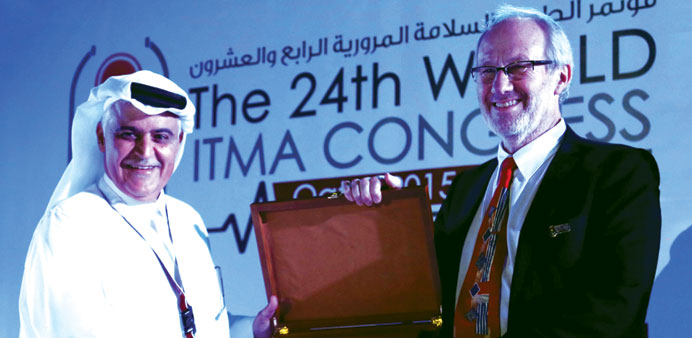Experts in road safety and traffic medicine discussed the importance of awareness and community education on the second day of the 24th International Traffic Medical Association (ITMA) Congress.
Kurt Bodewig, president of the German Road Safety Association, advocated the Vision Zero as a permanent strategy to reduce accidents and to avoid victims of the fast-growing road traffic.
He stated that there must be an intensive campaigning for more safety by changing the behaviour of the car users as well as strict rules to be followed.
Dr Abbas Motevalian, professor at Iran University of Medical Sciences, presented a paper on “Evidence-based safety education and training for traffic injury prevention.” He stated that safety education and training is one of the basic injury prevention strategies, although there are concerns about its effectiveness.
He pointed out that pedestrian safety education can increase the knowledge of children and improve their road crossing behaviour, but its effectiveness on road traffic injuries remain unknown.
Dr Abdullah al-Otaibi, Forensic Science College, Naif Arab University for Security Science, Riyadh, said that the number of accidents is very high in Saudi Arabia which requires a constant study and joint venture from authorities concerned. He explained the role of drugs and its impacts on the function of brain that leads to the decline of neurons.
Dr Ghassan Abu-Lebdeh, Department of Civil Engineering, American University of Sharjah, said that traffic crashes were the obvious and tragic outcome of a complex process of which traffic, human factors, roadway engineering and surrounding environment are all contributing factors. Traffic operations, however, inflict more physical and psychological harm on human health. Some of those harms show symptoms over longer terms, possibly for lifetime.
Dr Marie Skyving, of Swedish Transport Agency, disclosed his experiences on “STRADA: Road traffic accident and injury data in Sweden.” He pointed out that one of many important measures in the later road safety work in Sweden is a project attempting to reduce speed, namely the
implementation of speed cameras.
He added that without a comprehensive increase in traffic surveillance, it is difficult to achieve traffic safety.
Joanne Banfield, Sunnybrook Health Sciences Centre, Toronto, said that road traffic injuries are the leading cause of death among young aged 15-29 years.
Dr Susan Dun, Northwestern University in Qatar, spoke on “Why wear a seat belt? I’m going to die anyway: Young Arab men’s rationale for deadly driving behaviours.”
Brig Muhammad Abdullah al-Maliki, secretary of the National Traffic Safety Committee and the chairman of the Organising Committee, honoured the platinum sponsors Maersk Oil Qatar, QNB and Saleh Al Hamad al Mana Co as well as the gold sponsor Alfardan and silver sponsors United Development Co, Qatar Insurance Group and Qatar General Insurance and Reinsurance Co.
The committee also honoured Dr Lars Englund, president ITMA; Abdul Latif al-Mahmud, CEO of Dar al Sharq; Brig Muhammad Saad al-Kharji, director general of Traffic; and Muhammad Abdullah al-Maliki, chairman of the organising committee.

Brig Muhammad Abdullah al-Maliki honouring Dr Lars Englund.
